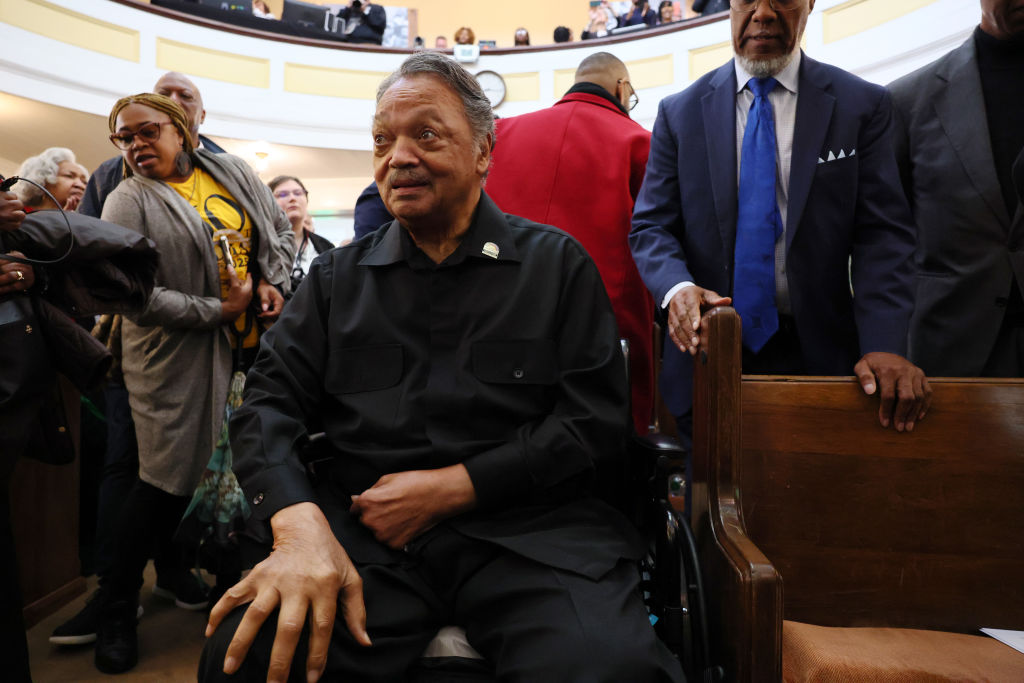In a poignant ceremony marking the legacy of civil rights activism, Rev. Jesse Jackson joined other leaders in crossing the Edmund Pettus Bridge in Selma, Alabama, on March 9, 2025. This event commemorated the 60th anniversary of the infamous “Bloody Sunday” when nonviolent protesters were met with brutal police force. Although Jackson crossed in a wheelchair, his presence resonated with the enduring struggle for racial justice.
Jackson’s Southern Roots
Jesse Louis Jackson’s formative years in Greenville, South Carolina, a city deeply rooted in segregation, played a significant role in shaping his civil rights endeavors and political ambitions. Born on October 8, 1941, Jackson’s upbringing in the segregated South influenced his perspectives and actions, even as he later moved to Chicago. His Southern identity remained a core aspect of his persona, as noted by his biographer, David Masciotra, who highlighted Jackson’s drive to combat oppression and persecution.
Impact of Segregation
Growing up in a racially divided environment, Jackson attended the all-Black Sterling High School, excelling as a quarterback and class president. These experiences of segregation left a lasting impact on him, as he told biographer Marshall Frady, reflecting on the unexpected responsibility he now holds against the backdrop of his early life. Rejecting a professional baseball contract due to racial pay disparities, Jackson’s journey led him north to the University of Illinois, only to return to the South, enrolling in North Carolina Agricultural and Technical State University.
Leadership in Civil Rights
Jackson’s return to the South coincided with a burgeoning Civil Rights Movement. In Greensboro, North Carolina, he emerged as a leader, participating in protests to desegregate local businesses. His activism led to his arrest during a significant student march, where he penned the “Letter From a Greensboro Jail,” echoing Martin Luther King Jr.’s famous letter from Birmingham.
Chicago and Beyond
In 1964, Jackson’s journey took him to Chicago, aligning with the “second great migration” of Black Southerners. At Chicago Theological Seminary, Jackson’s activism continued as he led Operation Breadbasket, an initiative aimed at economic justice by boycotting businesses not employing Black workers. Guided by Dr. Sam Proctor’s philosophy of earthly good, Jackson’s work mirrored King’s advocacy.
Presidential Ambitions
Jackson’s foray into politics saw him running for the U.S. presidency in 1984, one of the first African Americans to do so. His campaign aimed to mobilize disenfranchised voters and address moral and economic issues. Jackson’s 1984 primary performance was notable, particularly in the South, and his 1988 campaign saw even greater success, winning states and increasing his share of the white vote.
Political Legacy
Jackson’s presidential campaigns led to significant changes in the Democratic primary system, advocating for a proportional allocation of delegates. This reform, implemented in 1992, allowed minority candidates a fairer chance in securing nominations. Jackson’s influence was acknowledged by figures like Barack Obama, who credited Jackson’s pioneering efforts with paving the way for future leaders.
Southern Strategy
Jackson’s presence in politics coincided with the Republican Party’s “Long Southern Strategy,” appealing to racially conservative voters. His focus on justice may have contributed to the shift of Southern whites toward the GOP. Nevertheless, Jackson’s career underscores the enduring significance of regional identity, illustrating how one’s roots can shape national influence.






